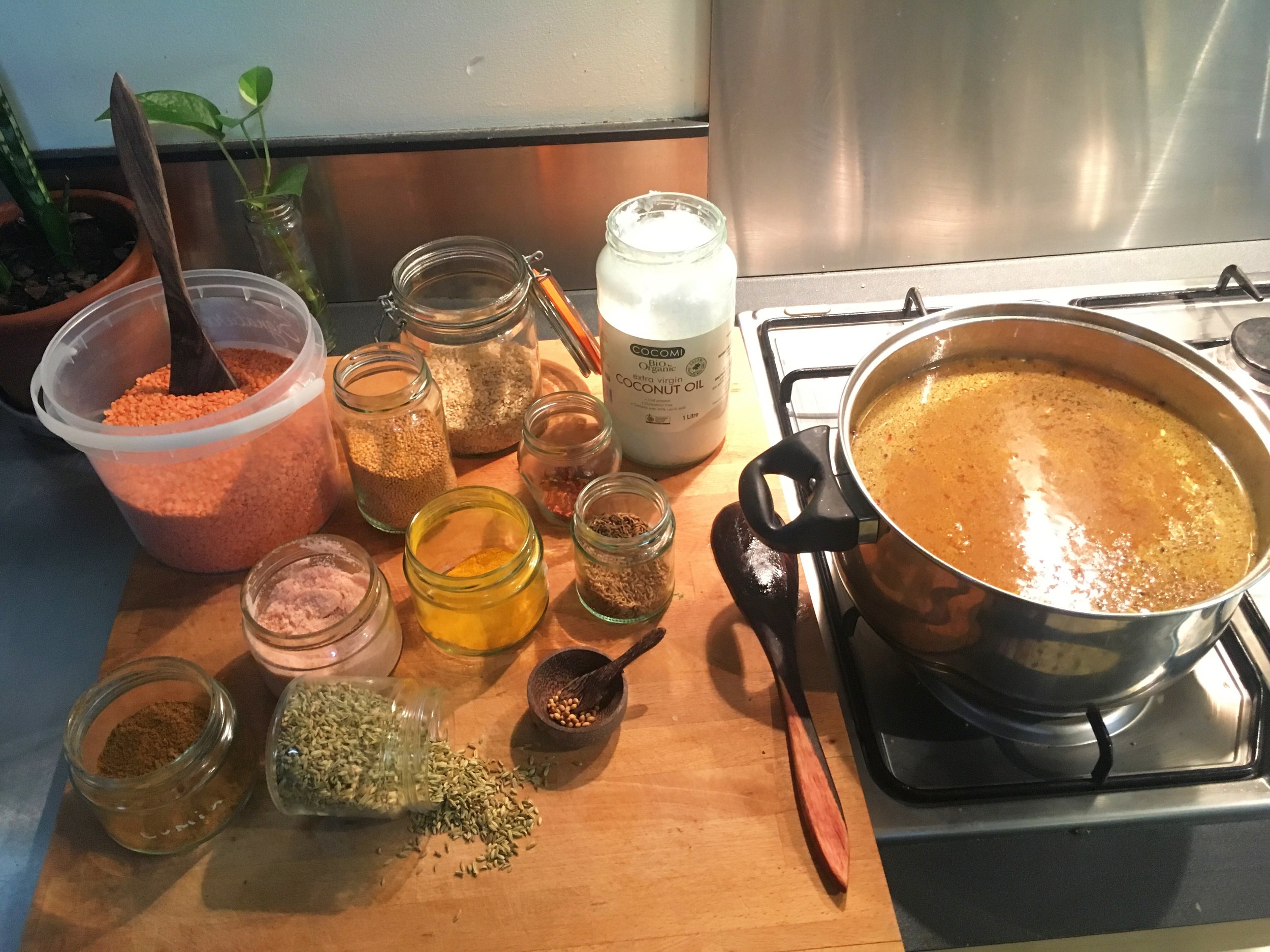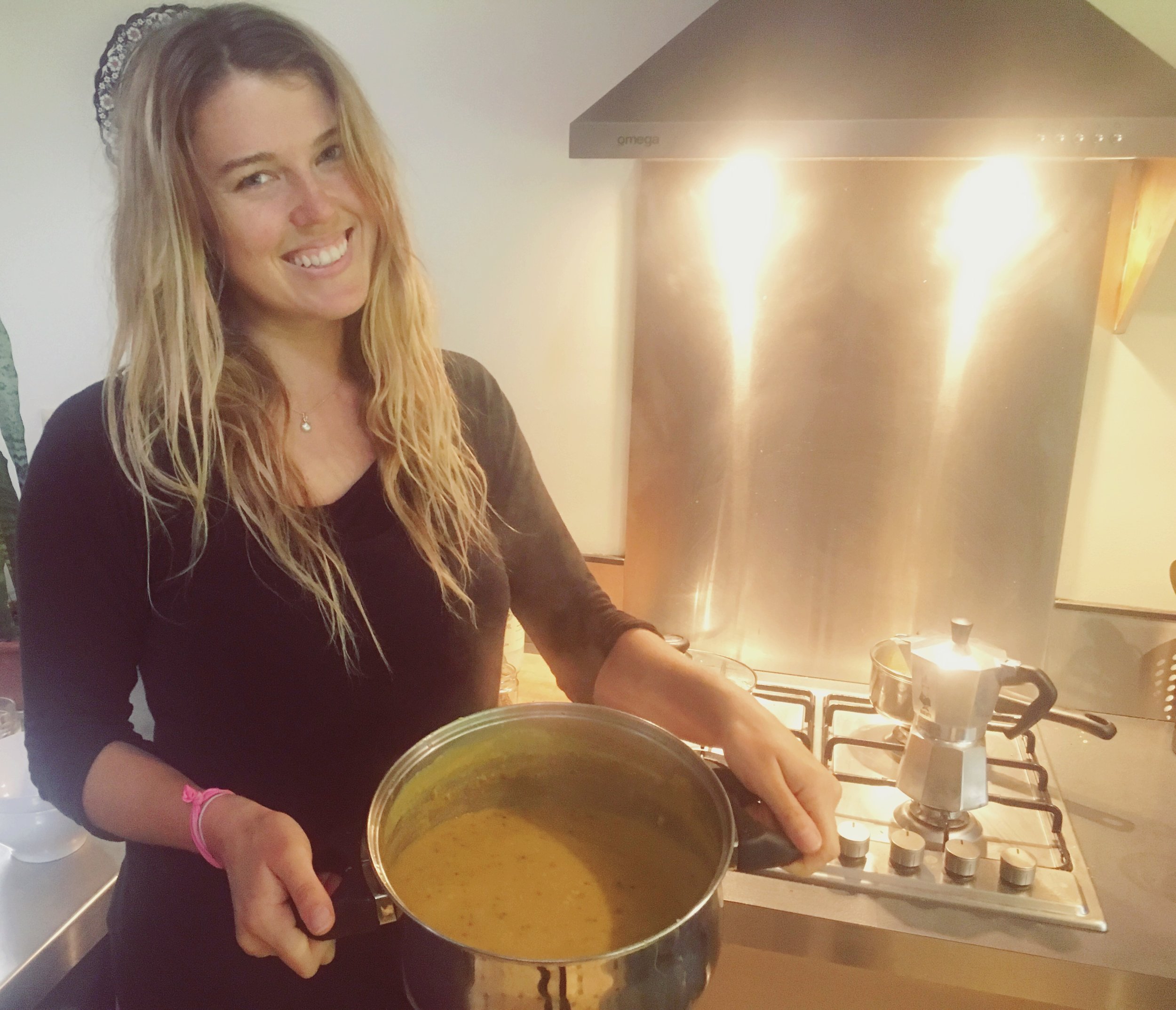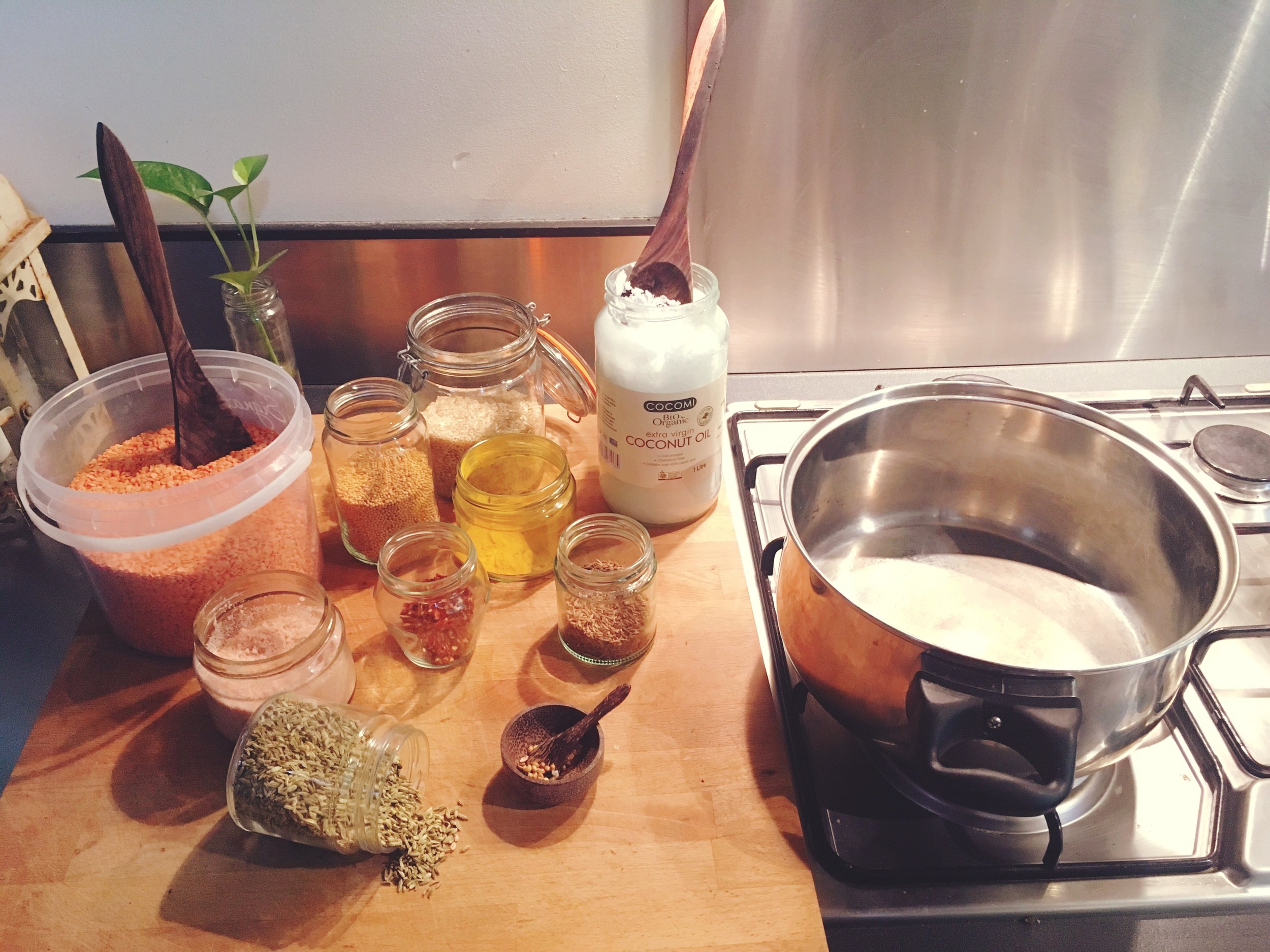KITCHARI CLEANSE : Warm Porridge for Winter
I am currently a humble student of Ayurveda, the ancient Indian approach to health of body, mind, soul, and emotions. We are learning how our constitution and health are impacted by food, lifestyle, seasons, geography, and much much mucccch more. I began this study to deepen my understanding of yoga and create more diverse recipes as I replace all plastic wrapped products with home made treasures. This course has already evolved far beyond this initial intention and expanded my consciousness with the breadth of this ancient tradition. I am not a doctor, I am not finished with my course, but I am inspired to share this recipe with you!
We are coming into winter over here. Typically you wouldn't want to fast or juice during these cooler months, as it might aggravate your already chilly bod and cause more harm--despite good intentions.
Instead, a soupy porridge made from easy to digest rice and dhal will do the trick to warm your belly and ignite your digestive fire. I enjoy this for breakfast, lunch, and dinner. As I replace meals with the simple kitchari, it acts as a detox for my system as it basically slides right through cleansing stored toxics and allowing the body to devote energy to healing. I recommend 3-7 days as well as lifestyle adjustments including meditation, light exercise, and anything that makes you happy. (This is why I love Ayurveda!)
How is this related to quitting plastics? The most common sector of life that we encounter disposable plastic is when EATING. By sharing a recipe, I also share a window in to my lifestyle. You can get an idea of how I live plastic free. Big tip: I give my local bulk foods store a TON of business! I fill up jars, plastic tubs, and spice bottles with all the ingredients needed.
INGREDIENTS
- 1 cup mung dal (I used red lentils this time)
- 1 cup rice (basmati is traditional way, I often use brown rice or quinoa)
- 1 heaping tbsp ghee or coconut oil (not too much for Kapha)
- 1/2 tsp yellow mustard seeds
- 1/2 tsp whole coriander seeds
- 1/2 tsp whole cumin seeds
- Approximately 6 cups of water
- Pinch of Himalayan Pink Salt (not too much for Kapha)
- 1/2 tsp coriander powder
- 1/2 tsp cumin
- 1/2 tsp tumeric
- 1/2 tsp fennel
- 1/2 tsp chili flakes (not for Pitta)
PREPARATION
- Pick out stones from rice and lentils, wash in separate bowls two to three times.
- In large pot on stove place coconut oil or ghee and turn burner to low heat. Sprinkle in your seeds.
- Once the mustard seeds begin to dance, maybe even out of the pot! Pour in your rice and lentils.
- Stir rice and lentils so all get nice coating of oil. Add in remaining spices. Stir together to release the flavours, not spending more than a minute here.
- Add the water. If you are worried, you can add the water first and the spices after. :)
- Bring to a boil, cover, cook on low heat stirring occasionally for 20-30 minutes until soft.
Kitchari is tridoshic, or balances all constitutions. However, you are welcome to adjust accordingly if you know your dosha:
- Vata is balanced by a kitchari with warming spices, grounding nourishment, nicely oily & salty! Perhaps add hearty root veggies and try a shorter cleanse, to avoid getting depleted.
- Pitta is balanced by a "cooling" kitchari with less mustard seeds, no chili, perhaps fresh cilantro on top.
- Kapha is balanced by a light, spicy, warm soup. Try using qunioa instead of rice, use less oil, many heating spices like mustard, chili, tumeric, dry ginger powder, etc. Can cleanse for longest.
NOTE: If this has the opposite effect and leads to constipation in you, then you may need to make your kitchari more unctuous and oily. Make sure you are warming it up in fresh oil with fresh spices to get your tummy ready! (This is an important aspect to the digesting process!) Or you can add in some fibrous veggies or have psyllium husks or prune juice away from kitchari meals.


